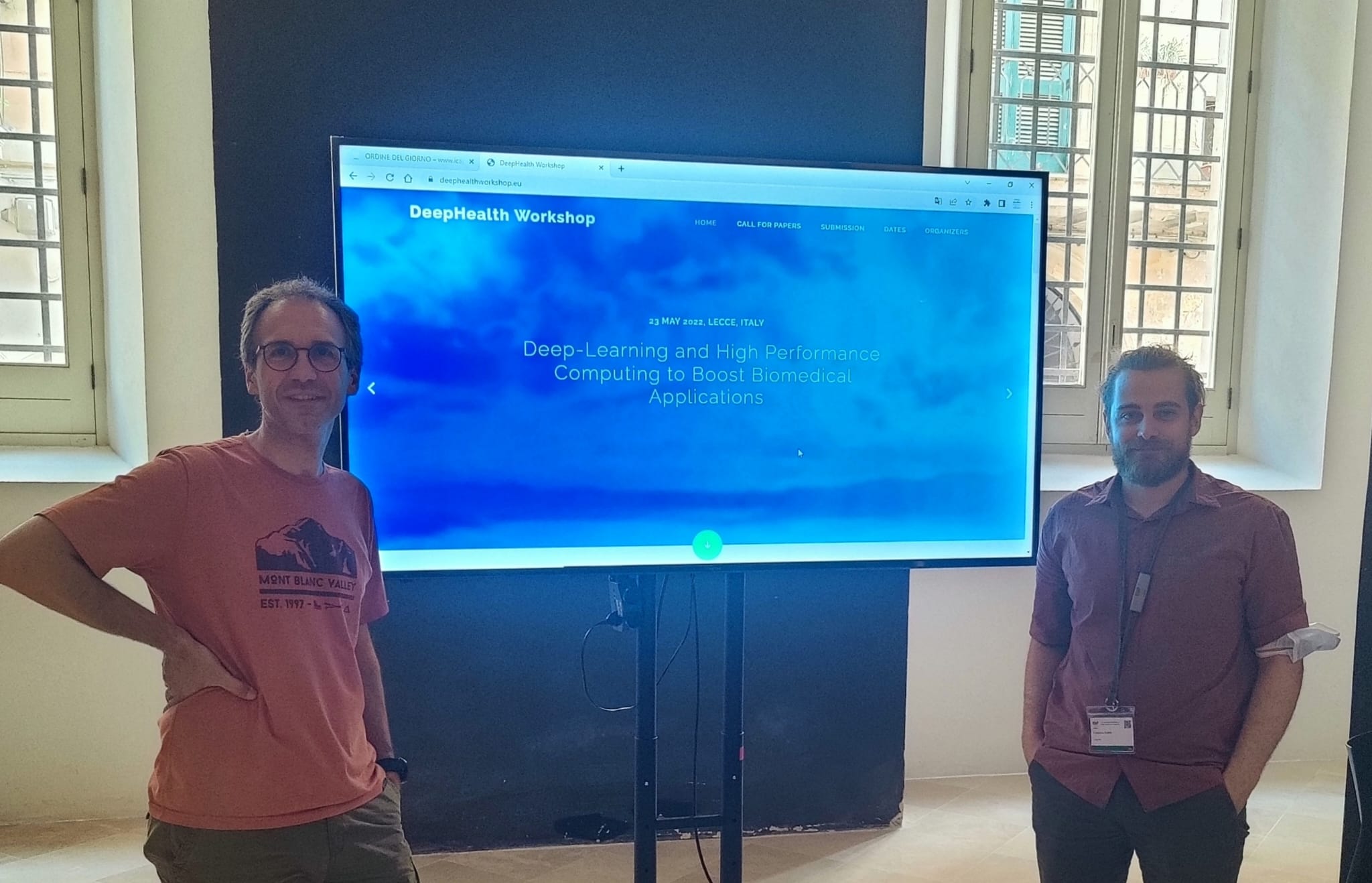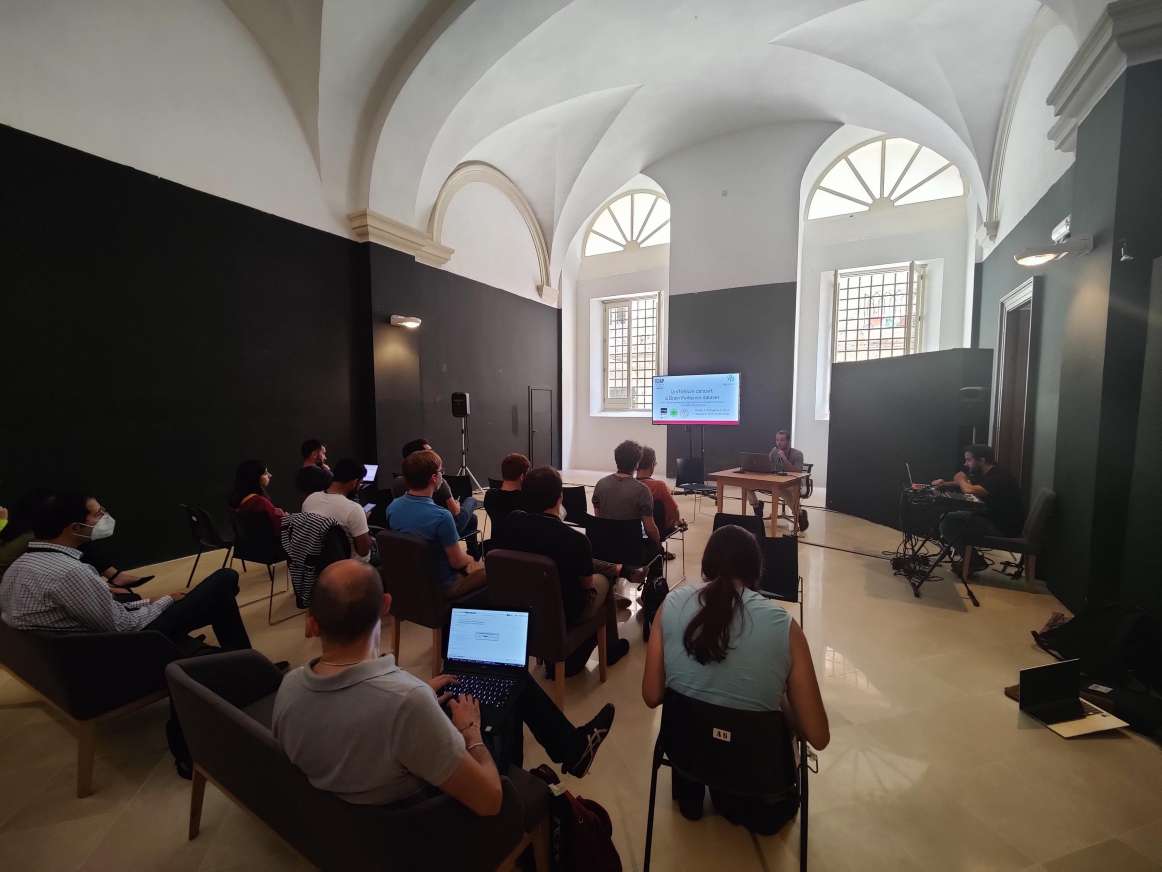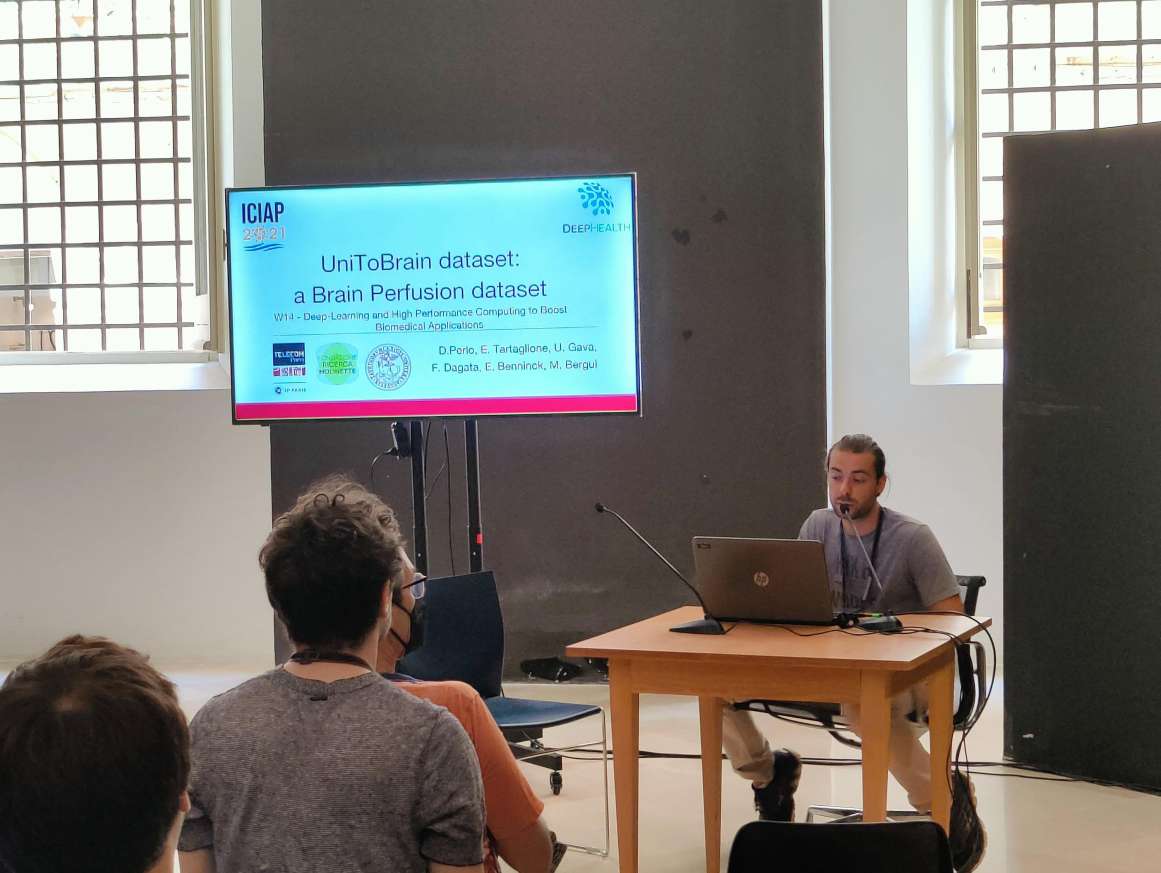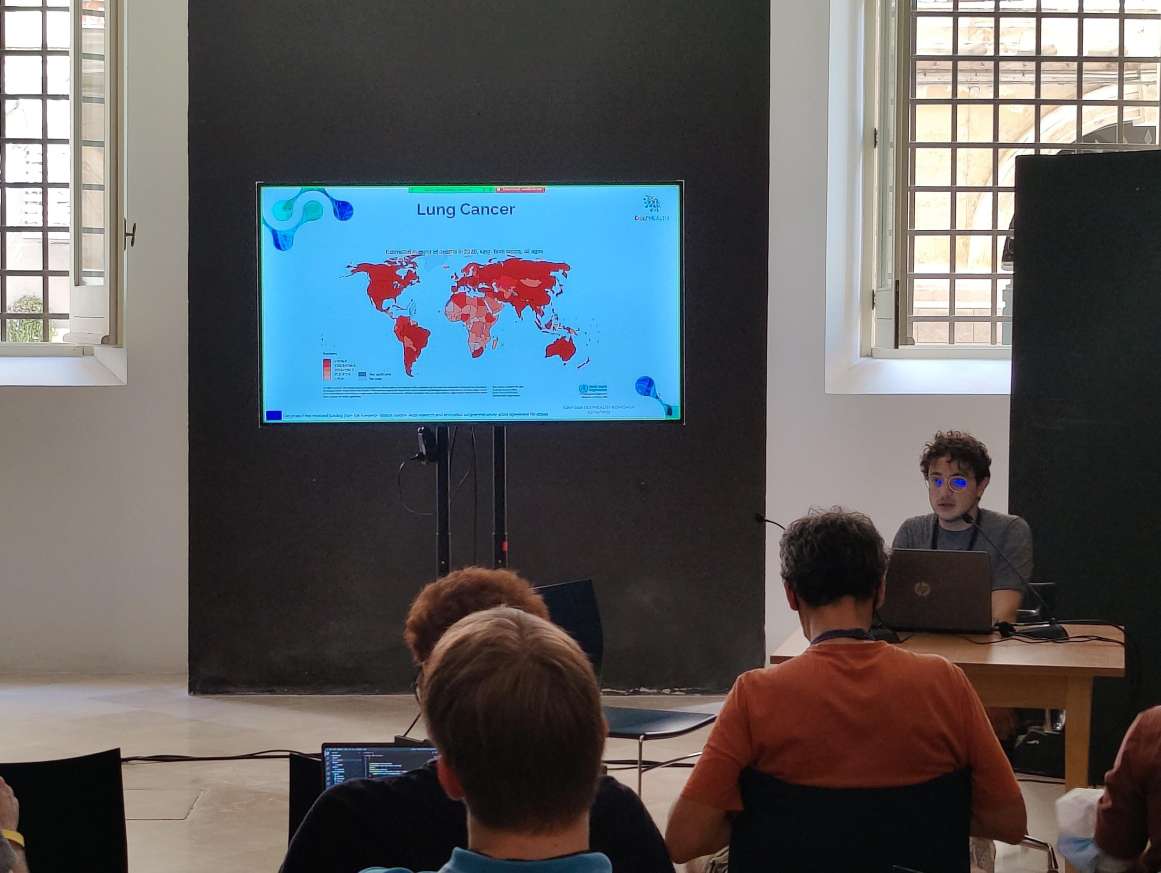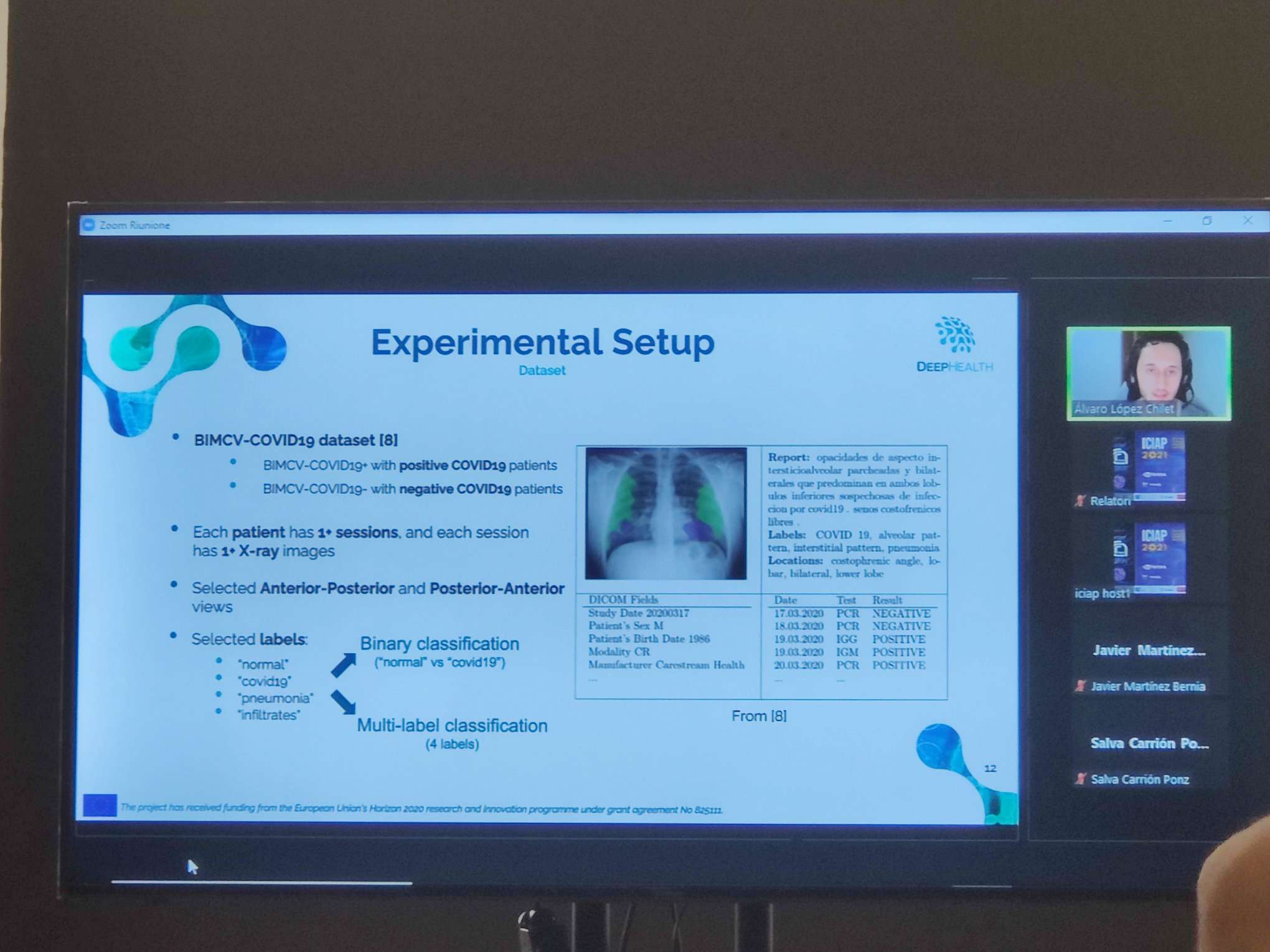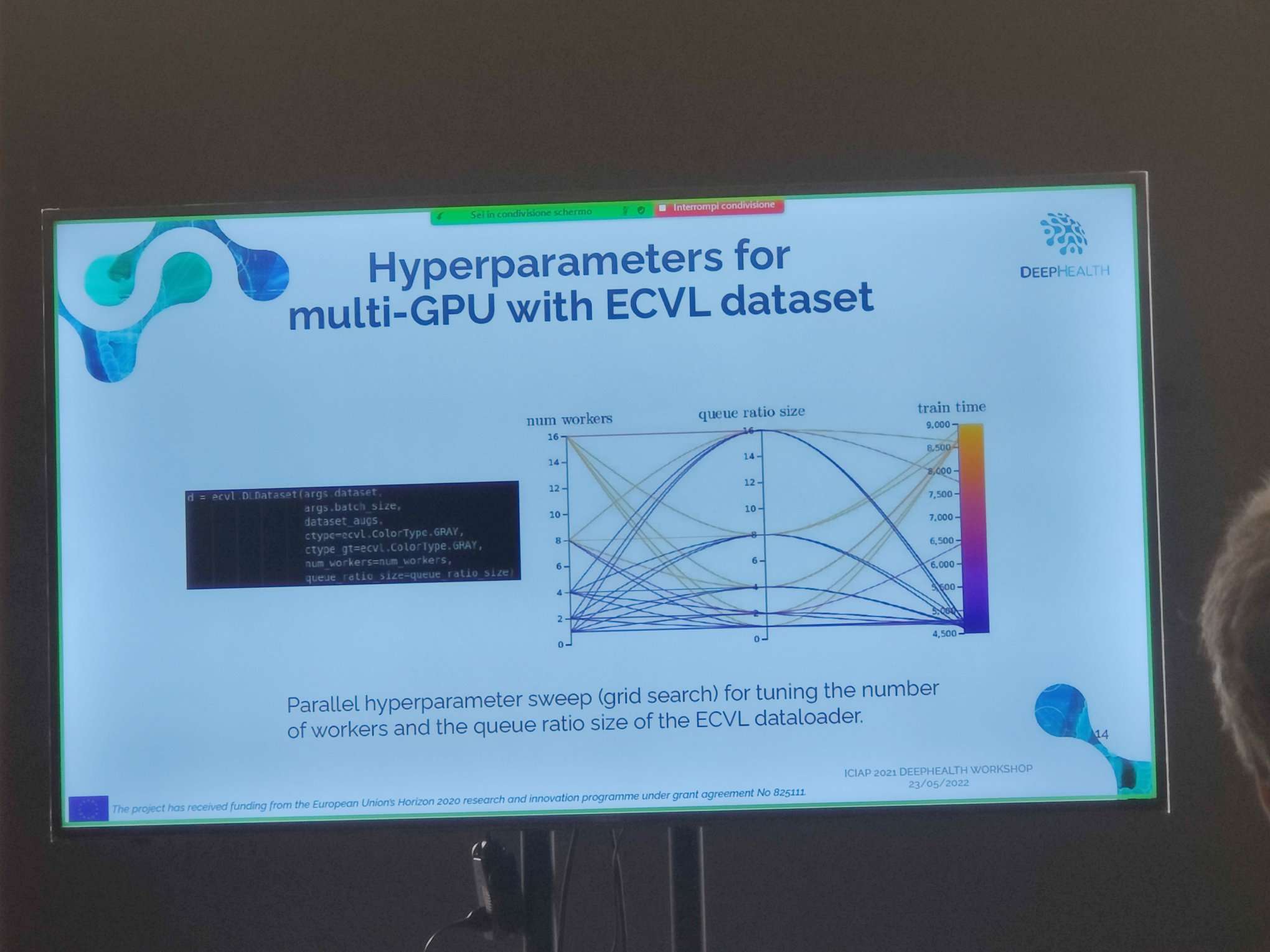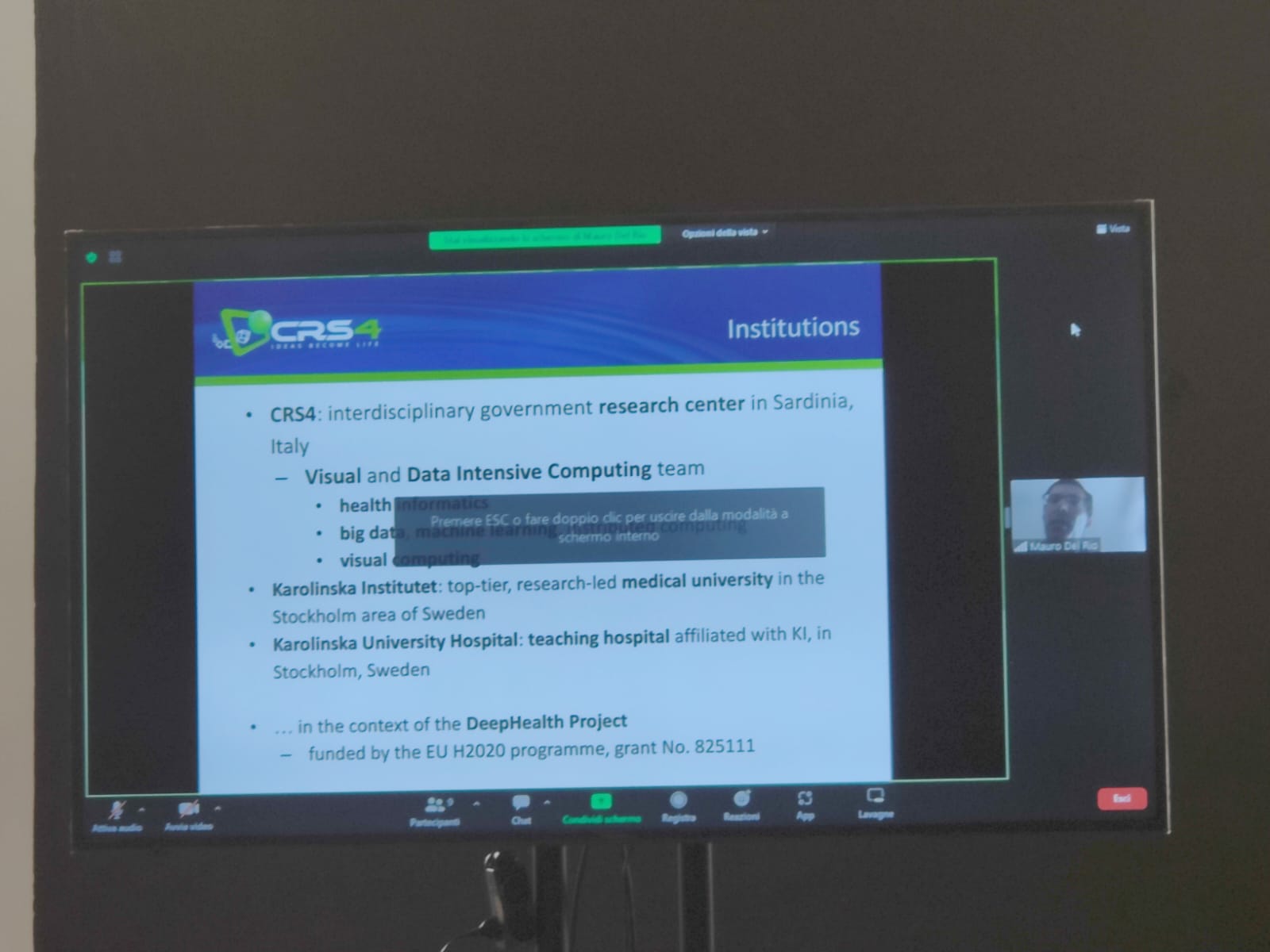Healthcare is one of the key sectors of the global economy, especially in Europe. Any improvement in healthcare systems has a high impact on the welfare of the society. The use of technologies in health is clearly a strong path to more efficient healthcare, benefitting both individual people and the public budgets. European public health systems are generating large datasets of biomedical data in general, and images in particular, as most medical examinations use image-based processes. These datasets are in continuous growth and constitute a large unexploited knowledge database since most of its value comes from the interpretations of the experts. Nowadays, this process is generally performed manually and global knowledge sharing is complex.
In the context of automating and accelerating the analysis of the health data and processes, health scientific discovery and innovation are expected to quickly move forward under the so-called “fourth paradigm of science”, which relies on unifying the traditionally separated and heterogeneous high-performance computing and big data analytics environments. Under this paradigm, the DeepHealth project was started to provide HPC computing power at the service of biomedical applications, and to apply Deep Learning (DL) techniques on large and complex biomedical datasets supporting new and more efficient ways for diagnosing, monitoring and treating diseases.
The DeepHealth project provided a unified framework aimed at exploiting heterogeneous HPC and Big Data architectures, assembled with state-of-the-art techniques in Deep Learning and Computer Vision. In particular, two new libraries, the European Distributed Deep Learning Library (EDDL) and the European Computer Vision Library (ECVL) have been developed together with the DeepHealth framework (https://github.com/deephealthproject) for manipulating and processing the images in a more efficient way and thus, for increasing the productivity of professionals working on biomedical images
The workshop “Deep-Learning and High-Performance Computing to Boost Biomedical Applications” (https://deephealthworkshop.eu/) was organized by DeepHealth partners in conjunction with the 21st International Conference on Image Analysis and Processing, May 23-27 2022, Lecce (Italy).
The workshop was chaired by
- Federico Bolelli, Universita degli Studi di Modena e Reggio Emilia (UNIMORE)
- Jon Ander Gómez Adrián, Universitat Politècnica de València (UPV), and
- Stefano Allegretti, Universita degli Studi di Modena e Reggio Emilia (UNIMORE)
while the workshop program committee consisted of
- Barbara Cantalupo, Università degli Studi di Torino (UNITO),
- Iacopo Colonelli, Università degli Studi di Torino (UNITO),
- Rolf Findeisen, Otto-von-Guericke-Universitaet Magdeburg (OVGU),
- Costantino Grana, Universita degli Studi di Modena e Reggio Emilia (UNIMORE)
- Marco Grangetto, Università degli Studi di Torino (UNITO),
- Marco Grosso, Azienda Ospedaliera Citta della Salute e Della Scienza di Torino (CDSS)
- Simone Leo, Centro di Ricerca, Sviluppo e Studi Superiori in Sardegna Società a Responsabilità Limitata (CRS4)
- Miquel Moreto, Barcelona Supercomputing Center (BSC),
- Roberto Paredes Palacios, Universitat Politècnica de València (UPV),
- Luca Pireddu, Centro di Ricerca, Sviluppo e Studi Superiori in Sardegna Società a Responsabilità Limitata (CRS4)
- Jean-Philippe Poli, Commissariat a l’ Energie Atomique et aux Energies Alternatives (CEA)
- Eduardo Quiñones, Barcelona Supercomputing Center (BSC),
- Carole Sentein, Commissariat a l’ Energie Atomique et aux Energies Alternatives (CEA)
- Tomás Teijeiro Campo, École polytechnique fédérale de Lausanne (EPFL)
- Francesco Versaci, Centro di Ricerca, Sviluppo e Studi Superiori in Sardegna Società a Responsabilità Limitata (CRS4)
The following 8 papers were presented during the workshop:
- Detection of Pulmonary Conditions Using the DeepHealth Framework
- UnitoBrain: A Brain Perfusion Dataset
- Lung nodules segmentation with DeepHealth toolkit
- AI support for accelerating histopathological slide examinations of prostate cancer in clinical studies
- A Compact Deep Ensemble for High Quality Skin Lesion Classification
- Automatic Detection of Epileptic Seizures with Recurrent and Convolutional Neural Networks
- Enabling Efficient Training of Convolutional Neural Networks for Histopathology Images
- Fast Learning Framework for Denoising of Ultrasound 2D Videos and 3D Images
The pictures below capture workshop moments.

